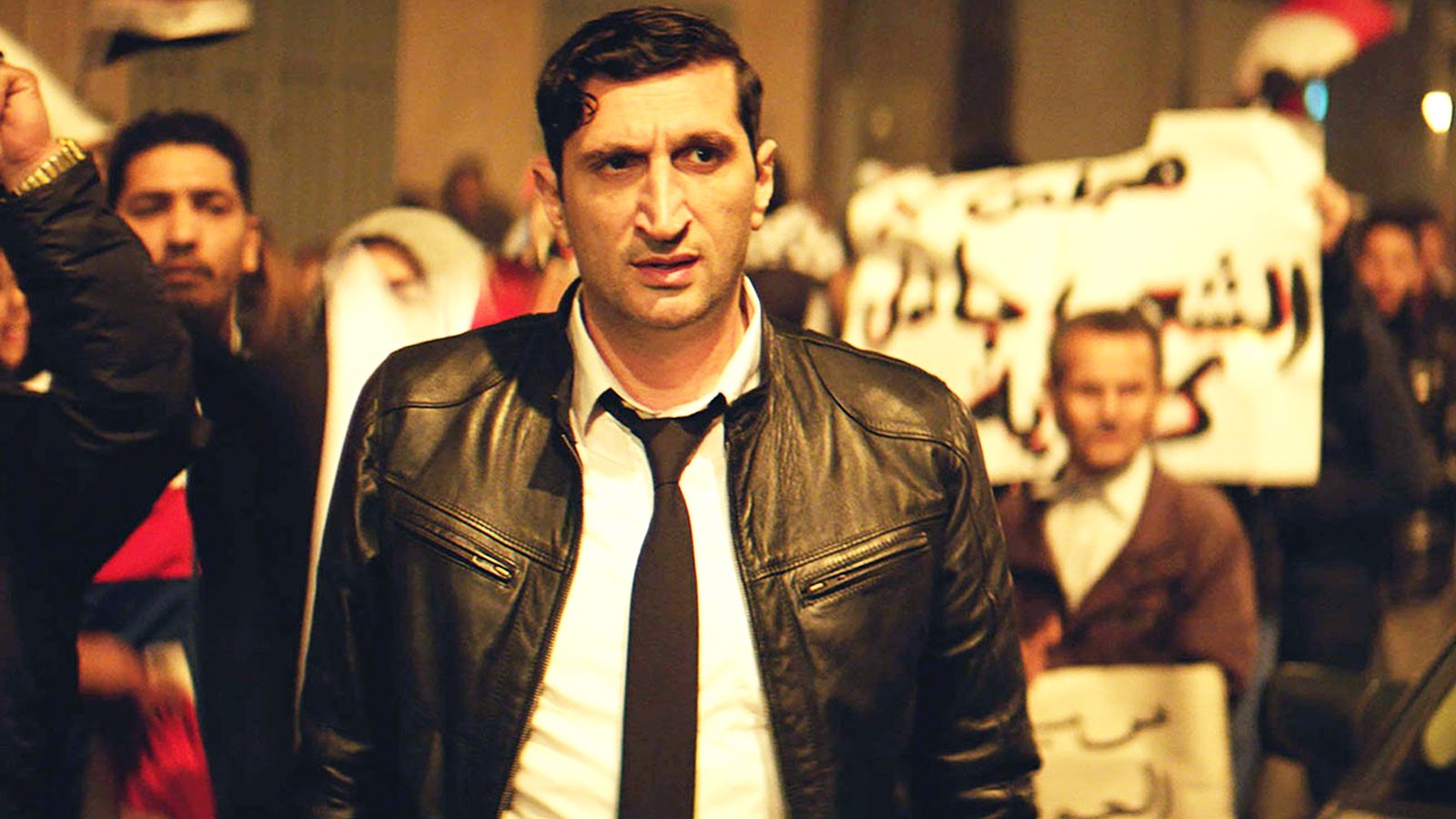By Mina Jaff
Here is a thriller quite out of the ordinary: Tarik Saleh’s The Nile Hilton Incident. Firstly, there are a couple of things to learn about the background and making of the film. Tarik Saleh looked to a scandalous case of 2008, which was covered widely in the Arab media. This immensely powerful multi-million businessman, whom Saleh likes to refer to as the “Egyptian Donald Trump,” orders an Egyptian police official to murder a woman. This woman is Suzanne Tamim, a very well known Lebanese singer. The policeman accepts, and murders her in a Dubai hotel room. Someone gets suspicious, and discovers who is behind the murder, so the case is brought to court. In 2009, the Egyptian Donald Trump is sentenced to death, but only a brief while afterwards, the penalty is mysteriously replaced by a 15-year prison sentence. The 15-year sentence is again abridged, and he is released from prison in 2017.
Saleh, born in Stockholm but of Egyptian descent, was inspired by this case and wrote a script in 2010. The film plays with the same murk of corruption in the highest ranks: a woman is being killed in a Hilton hotel in Cairo, and the policeman who is charged with solving the case has to look into the deepest and highest crusts of corruption. The plotline begins just a few weeks before 2011’s revolution in Cairo, and culminates in riots and turmoil, and the ultimate dissolution and overthrow of all state affairs.
When Saleh set to work on the film script in the autumn of 2010, the revolution was still the stuff of his invention. He thought that the case revealed abuses and power corruption within the political system. Then he rejected the idea: this would make for a ridiculous plotline – a revolution? So the script was put into the drawer of his desk, left to smolder. There, it lay over the winter, until a couple of months later he found his fiction to be a reality: the Arab spring arose in Egypt.
Saleh, restless enough about the revolution, quickly picked his script from the drawer again. Adapting the script to a film was now more pressing than ever, so he summoned some contacts to bring a film team together. Among them was Fares Fares as the protagonist, a Swedish-Lebanese actor who happens to be quite the big cheese in Swedish cinema due to his leading role in the comedy Kopps.
The plan was to shoot in Cairo, but the team was thrown out of the country just four days before they wanted to set to work. The Egyptian police warned the film team that, should they decide to produce their film within Egypt, their “security could no longer be guaranteed” – which was to say: leave now or something bad will happen. Hence, the team retreated to Casablanca for the shoot. But Casablanca is presented in an authentic Cairo make-up, since this is where the plot is set.
The filmic composition is marvelous in every respect: the acting is as authentic as could be, dynamic camera movements present the state of affairs mesmerizingly, and the soundtrack allows the fullest immersion through a mellow instrumental core and the emphasis of background noise when events begin to ‘explode.’ The film language is Arabic, so the Arabic-speaking film audience will possibly fathom still much more. Unfortunately, the film was not screened in Egypt’s film theaters, but praised by some local artists. One Egyptian arts newspaper even published a large-scale review praising the film. Saleh was exalted. He thought he finally had a chance of entering Egypt again, so he called his father up to break the news to him. But the father dismissed his son’s enthusiasm and warned: “absolutely not!”
Featured image source: Stranger Tickets
Mina Jaff is a 3rd semester student, majoring in Literature, from Munich, Germany.

